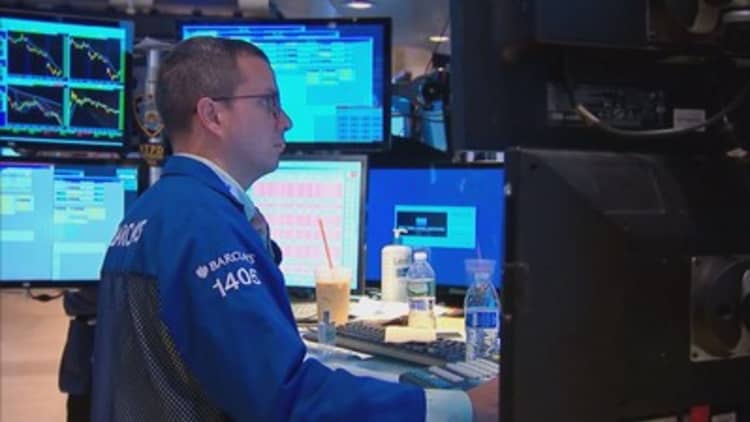
Last year, a new stock exchange called IEX, or The Investors Exchange, emerged to challenge traditional Wall Street as the champion of the ordinary investor. New analysis says its core mission has been successful so far.
In an opinion column in The New York Times on Tuesday, Jonathan Macey of Yale Law School and David Swensen, Yale's chief investment officer, offer their analysis of IEX, which was profiled in Michael Lewis' book "Flash Boys," based on data that measures how how well it executes customer orders compared with competitors.
In trading, there's a gap between the price at which buyers and sellers are willing to transact. The narrower that gap, or spread, the better. In the six months before IEX got up and running in September 2016, the Nasdaq had the best effective spreads, the Yale authors said, offering the best for as many at 216 stocks in the S&P 500.
But the month IEX began operating, that shifted, the Yale authors said. IEX became the place with the best effective spread, ranking highest in some 412 of the stocks in the S&P 500. And in more recent months, it held onto this perch. In June, it ranked first in 500 of the 505 S&P 500 names.
What's more, the Yale authors said, competing exchanges had average effective spreads that were 96 percent higher than IEX for the stocks in the index.
What it all means is that big mutual funds and pension funds trading money on behalf of their investors can do so at IEX at a lower cost, which in turn boosts investment returns.
This all brings up the debate about how exchanges operate.
For years exchanges have offered rebates to traders who bring them business. The payment model sometimes called "maker-taker" gave a boost to high-speed trading at a time when automation was rising to dominance. But it has also drawn criticism from money managers for creating the wrong incentives — the trader is motivated to pick an exchange because of the rebate it pays versus getting the best price for customers.
IEX was set up specifically to turn this on its head, offering no rebates and putting a "speed bump" on trades to slow down high-speed traders. The idea was to level the playing field between professional traders and ordinary investors. Others would argue that rebates have created advantages, in the sense that liquidity has been added to the markets and trading costs have been sharply cut.
The Yale authors and others have concluded that rebates are bad because they cost investors the best chance to get the best price. "Elimination of kickbacks would elevate the integrity and quality of America's securities markets," the Yale authors said in their column.
Yet, IEX only has about 2 percent market share — emphasizing their point that traders are still being motivated by rebates in their choice of exchange.
The SEC has kicked around a pilot program that would study the issue of rebates and their effect on the way the markets operate, and that idea has gotten some new life recently. Last week at the Economic Club of New York, SEC Chairman Jay Clayton said there is broad agreement that the pilot should take place, adding the commission is likely to consider a formal proposal in the coming months.
"Such a pilot should provide the Commission with more data to assess the effects of access fees and rebates — including 'maker-taker' and other pricing systems — on liquidity provision, liquidity taking and order routing," he said. "These, in turn, affect the functioning of markets and investor welfare."

